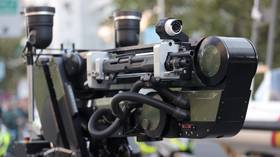UN talks on killer robots fail

UN talks aimed at thrashing out rules on the use of fully-autonomous weapons systems have stumbled on stiff opposition from countries that invest heavily in military AI, leaving a legal vacuum.
On Friday, the sixth review conference of the Convention on Certain Conventional Weapons (CCW) failed to arrange further negotiations on the use of Lethal Autonomous Weapon Systems (LAWS). Parties to the convention merely agreed to continue discussions instead.
Despite calls for an “ambitious plan” made earlier by UN Secretary-General Antonio Guterres, the five-day gathering in Geneva bore little fruit, after nations that are investing heavily in the development of ‘killer robots’ blocked a decision on the establishment of legally-binding rules.
According to Reuters, citing unnamed sources, among the vetoing countries were the US, Russia, and India.
A number of states and NGOs have expressed dismay at the lack of progress in Geneva. Austrian Foreign Minister Alexander Schallenberg and New Zealand Minister for Disarmament and Arms Control Phil Twyford have pointed out the importance of developing new international laws regulating autonomous weapons.
Commenting on the conference’s outcome, Neil Davison, a policy adviser in the Legal Division at the International Committee of the Red Cross (ICRC), described it as a “real missed opportunity.” Verity Coyle, a senior adviser at Amnesty International, said the “CCW has once again demonstrated its inability to make meaningful progress.” Richard Moyes, a coordinator at the organization ‘Stop Killer Robots’, urged governments to “draw a moral and legal line for humanity against the killing of people by machines.”
In contrast to military drones currently in use, fully-autonomous weapons make life-and-death calls on their own, without a human operator. These types of weapon systems may have already been deployed, according to a UN report which claims that the first fully-autonomous drone strike was carried out in Libya in March 2020. The account did not say whether or not the attack resulted in casualties, but use of the weapons would mark a historic development in warfare.
















